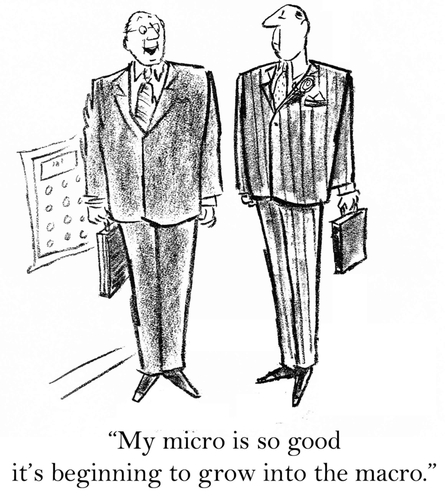I was having coffee the other day with my friend, Leo Hermacinski, who helped scale The Parthenon Group (a very successful strategy consulting firm) in Boston over a 17 year period. As we shared war stories it became clear that we had similar views on business and scaling. The discussion inspired me to share these thoughts on scaling Professional Service Businesses.
Positioning:
- Ask yourself what is the prospect thinking when they reach out to find help? What are the key words they use? Think about outcomes your service delivers. Why is your experience credible for that specific issue? There a million one man bands offering strategic consulting but really the ex CFO’s resume shows little credibility solving major strategic initiatives. These days prospects can use the web, fueled by a cornucopia of sources, to really fine tune what help they need. They are searching for myopic solutions to myopic problems. Who you are drives everything.
- Think in terms of niches that fill the gap in the prospects head (Al Ries Positioning). But be careful that the prospect understands exactly what you do. Don’t make it hard for prospects to translate what you do into a solution they can use.
- Rules change. Needs change. Todays niche is tomorrow’s commodity. SAP software installation may have been a niche in 1995 but today? It’s more likely that financial reporting within Healthcare providers is today’s niche. Consultancy and service businesses need to constantly audit the signals to ensure they remain relevant.
- Is the market real? Will companies pay for your service? There’s no point in creating a niche, let say assisting UK expatriates based in the US on their UK pensions, if the market is tiny. It’s not in this case. Florin Pensions. So work out the potential size of the market and build out issues that are hurting that audience. This is relevant for repositioning existing businesses as well as launching a start up.
Business Winning
- The world has changed dramatically in sales over the last ten years. Prospects have mastered how to use the internet much more efficiently. The ability to quickly cross reference a web site with Linkedin with editorial papers published ensures that prospects know a fair bit about you before you ever connect with them.
- These days your stories are being measured for real authenticity. I speed read a lot of business blogs and it’s clear there is a lot of nonsense out there. Have these people ever actually executed this stuff they say they are experts in? Try to outline outcomes achieved for clients with testimonials. Prospects recognize symptoms they are feeling long before lists of service offerings.
- Don’t underestimate the time needed to move from business development, to proposal, to work completed, to invoice and to cash in the bank. Whether starting out on your own or launching a new service, the lead time to cash received can be nine months.
- So many talented small practices would like to scale but have failed. Often an expert has a unique talent and can do very well but the business is him or her. Cracking that problem at the start is all about finding partners that can win and execute the business. At Livingstone Fisher in London in the 90’s, an M&A guru called Barrie Pearson was a very successful player. But it was just Barrie. Livingstone Fisher was Barrie and a part time secretary. In joining Barrie I had no idea how tough it was going to be but somehow through a significant investment by him it worked. My keenness, grit and need for money helped. But I had to be able to win work not just close deals. We found a blueprint that worked and before long we had a significant team with our own research department and we were off. I did it again at Capita but this time I was the guru!
Metrics
- What gets measured gets done. Never forget it. These days you can measure anything. And in some ways that’s a problem. You need to curate what’s important.
- Utilization rates, business won by partners, invoiced work by partners and the sum of them. Attrition rates of subscription type services are key. The marketing metrics surrounding your web site, unique visitors by page, downloads, keywords. The ROI of your Adwords, the profitability by customer, the volume and $ of proposals going out the door. Trends on market share, on growth rates all matter.
Auditing all marketing campaigns to see what works is essential. The ability to change messaging, update blog posts, prompt your market needs to be grasped. Don’t change things too quickly. Give them a chance but be brutal with pet projects. Build abort criteria into new service offerings before you launch them. It’s the point of maximum objectivity. After 6 months of failure you can drown in a sea of excuses leading to further wasted money. - Ask yourself if this business is really dominating this niche what type of metrics should I be measuring to confirm it?
Scaling Ideas
- Expanding into contiguous sectors using NAICS codes, eg women entrepreneurs for wealth management companies.
- Expanding into contiguous States with similar issues.
- Using new partnerships and resellers to reach parts of the market you can’t.
- Farming different subsidiaries of existing clients with similar problems.








